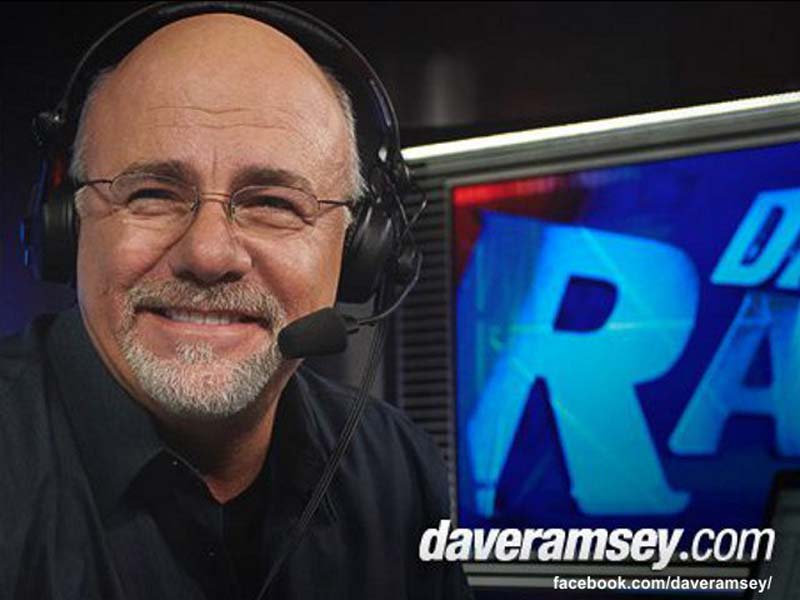Dave Says: Follow the financial plan that works and gets you to your long-term goal
Dear Dave,
I just started Baby Step 3 of your plan. It took me about 12 months to pay off $8,000 in debt during Baby Step 2. I am 50, and I work in the printing industry making about $38,000 a year in a city with no local or state income tax. I have not done a lot about retirement yet, and that worries me now that I am learning to manage money in a smarter way. How can I stay on track with the Baby Steps and still do something about retirement?

Blake
Dear Blake,
I generally look at a timeframe of six months to a year for saving a fully funded emergency fund. So, if it took you about a year to pay off $10,000 in debt, you’re probably looking at about the same length of time—or less, since the debt is gone—to save up an emergency fund. Keep in mind that an emergency fund is three to six months of expenses, not income.
But here’s the thing. If you start building retirement right now and have an emergency, do you know what you’ll use? Yep, you’ll use your retirement. That’s why an emergency fund comes before retirement in the Baby Steps.
The median household income in America is around $68,000, and that’s often two incomes. You’re probably working pretty hard for that $38,000, so I would challenge you to think about and work toward something you could be doing in the near future to make that much money or more.
I want you to open your mind and imagination, and start thinking fresh again. Don’t do something silly like quit your job today, but if you’re going to be making $38,000 five or 10 years from now it’s time to aim at something else.
I’m trying to speak to your retirement fears, as well as warn you against addressing retirement without having an emergency fund in place. Save up a solid emergency fund over the next year, while at the same time doing some serious thinking and goal setting.
Maybe you’d like to do something completely different, or even own a printing company by that time. Who knows? The cool thing is you can make it happen, and the choice is all yours!
— Dave
AD&D insurance? No, thank you
Dear Dave,
My wife and I both work, and we have been looking at level term life insurance policies. A friend says it would be a good idea for us to have accidental death and dismemberment insurance, too. Do you agree?
Aiden
Dear Aiden,
You both definitely need good level term life insurance policies. Stick with 15- to 20-year level term life insurance, and make sure that coverage is separate from anything provided by your employer.
Each one of you needs 10 to 12 times your yearly income wrapped up in a policy. If you make $50,000 a year, that means you need a policy with $500,000 to $600,000 worth of coverage. The idea of life insurance is to take the place of income. If you or your wife died, the other could invest the insurance money and replace that lost income.
You do not—I repeat, not—need accidental death and dismemberment (AD&D) insurance. These policies are cheap, but they’re pretty much worthless because of the long list of conditions they won’t pay out for. Most pay out only a small portion in cases of dismemberment, and many won’t pay a death benefit if you die from a medical procedure, health-related issue or drug overdose. The devil’s in the details, and AD&D policies are chock-full of them.
If you have long-term disability insurance in place, which is what I recommend, you can be covered for a substantial part of income lost due to an injury or disability. One study says 25% of today’s 20-year-olds will become disabled by age 67. In my mind, those odds are way too high for you to skimp on long-term disability insurance—especially when it’s very affordable in most cases. If you’re in your prime income-earning years, a permanent disability could derail your dreams of homeownership, paying for your kid’s college or having a dignified retirement.
I hope this helps, Aiden!
— Dave
Dave Ramsey is a seven-time #1 national best-selling author, personal finance expert, and host of The Ramsey Show, heard by more than 18 million listeners each week. Hehas appeared on Good Morning America, CBS This Morning, Today Show, Fox News, CNN, Fox Business, and many more. Since 1992, Dave has helped people regain control of their money, build wealth and enhance their lives. He also serves as CEO for Ramsey Solutions.
-30-





